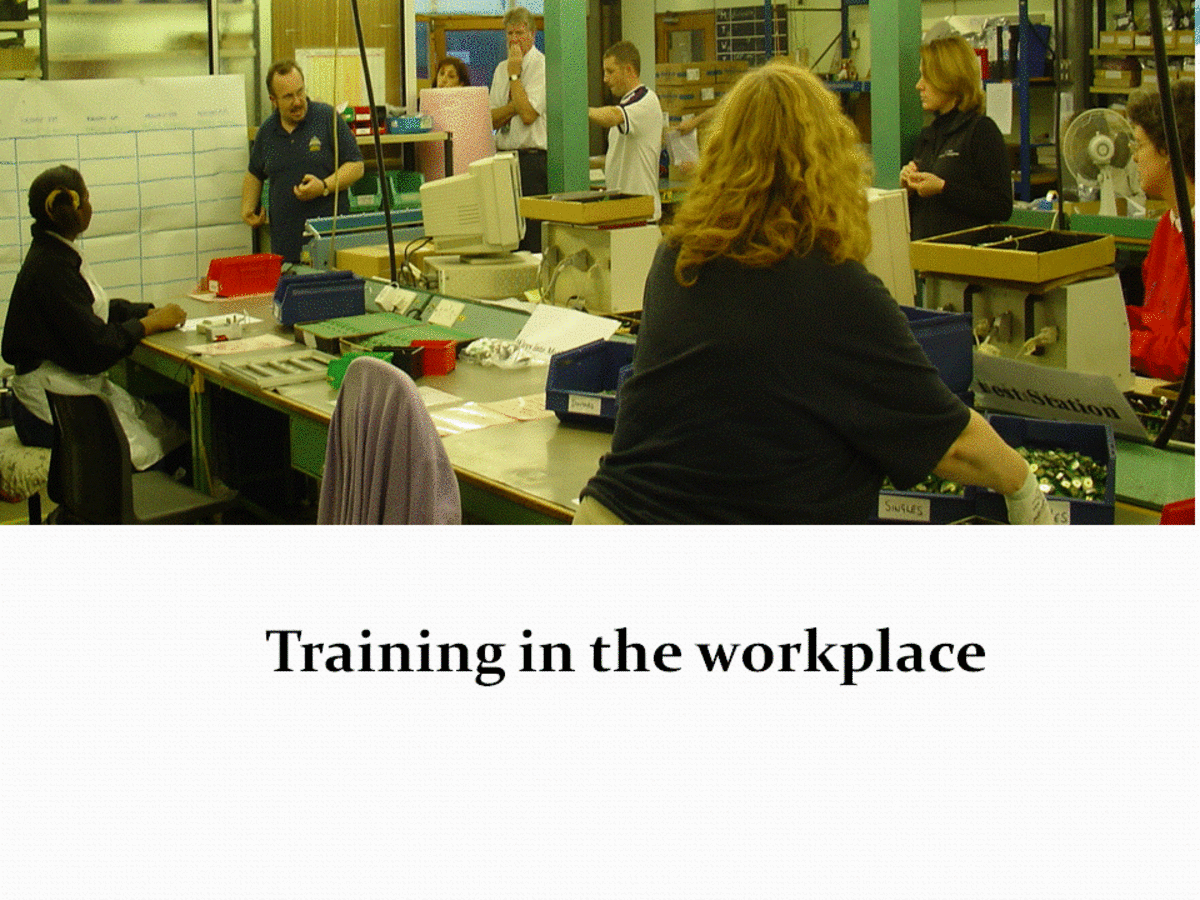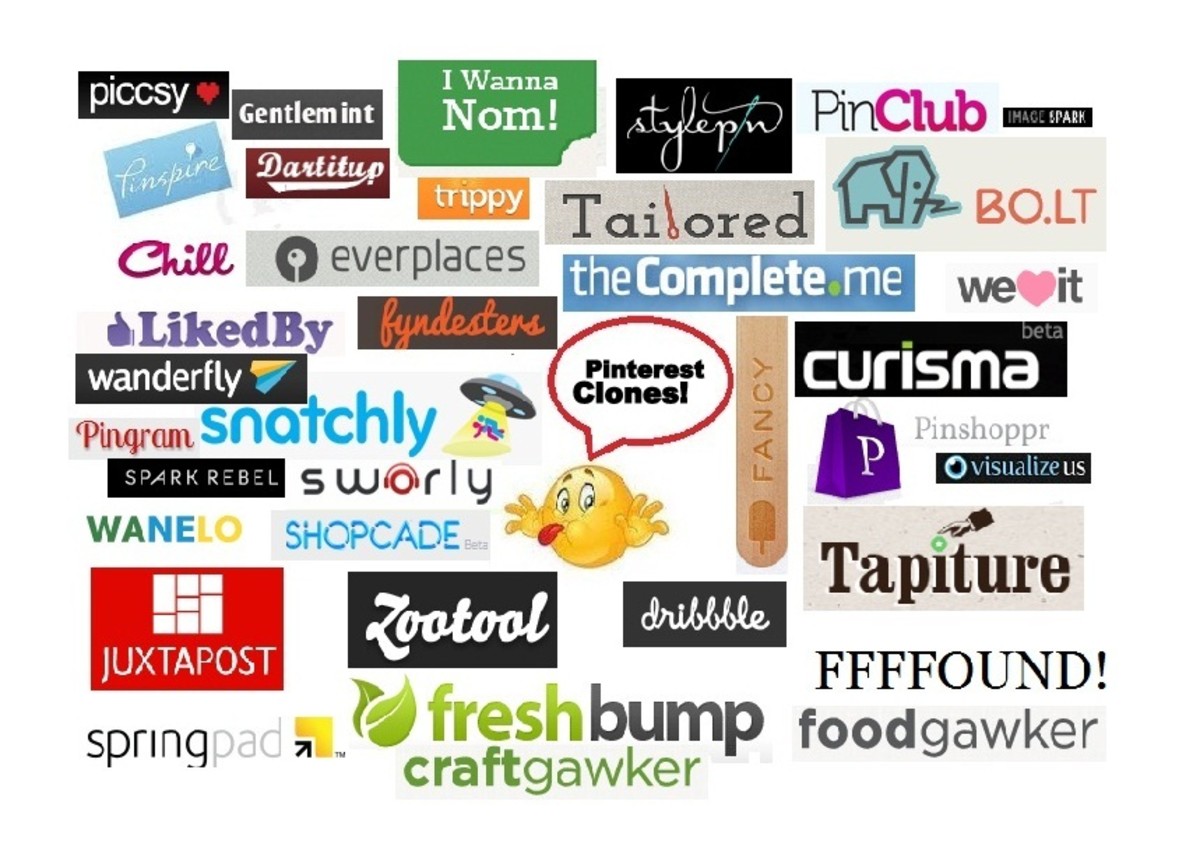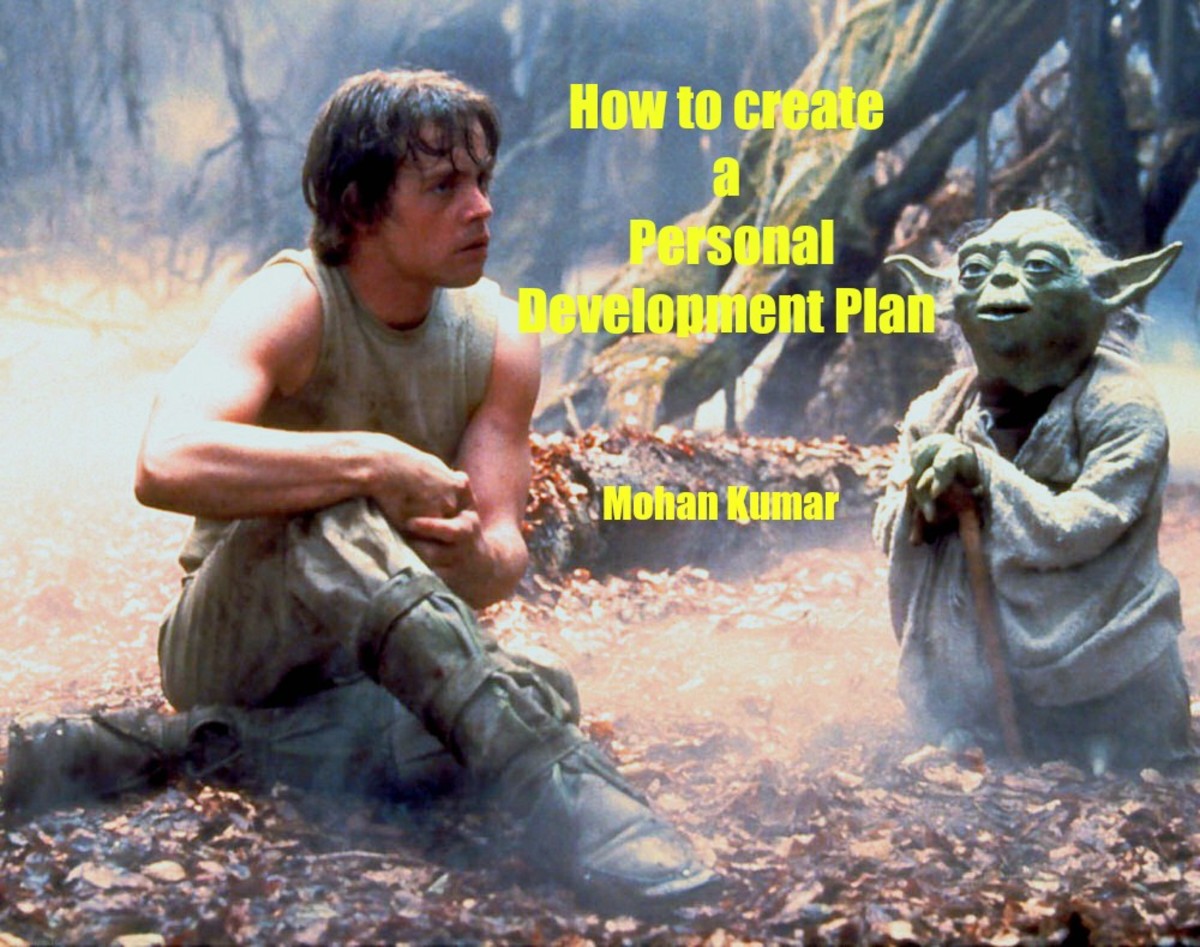Technical Consulting as a Career or Career Change

Change Your Career and Change Your Life
A technical training and consulting firm provides an easy and cost-effective way to expedite your career placement and professional needs. You may even approach a firm while representing a corporate entity with a requirement to outsource that entities database and network administration, or you may present a consulting firm with a managed-service specification to augment and train your existing staff. You may be a working independent, and be seeking either a new assignment, or a new occupation entirely. A technical consulting firm can provide you with experienced DBA's, Programmers and Network consultants, or the training and contract opportunities you require to advance.
Technical Consulting: Quit your old job and Grow Rich
Anyone can be an independent consultant, you merely need to act upon the desire to do so. You don't require a special license or membership within a council or professional association either. In most cases, in fact, there is no government regulation on most types of consulting. All you have to do is convince clients to pay you for your expertise.
Unfortunately, THAT can be far more difficult than passing a technical certification exam.
If you are working as Contract Technical Labor, you don't have to worry about that part.
Okay... maybe you won't "Grow Rich" exactly, but-
There is this popular misconception that consultants do nothing and make a ton of money. Well, it is true that consultants may do both. But they do not do both at the same time. A consultant is either working (usually compensated well for the work). Or, a consultant is doing nothing. Logically, you are NOT "well compensated" for doing nothing. Therein lies the trick.
Consultants are usually "busy people". Actually, consultants tend to work Very Hard. They are individuals who take their designated areas of specialty very seriously. There is a reason they are well-compensated, after all.
Successful consultants, are those with a knack for finding new customers, retaining old ones and delivering a continuous stream of working solutions to those customers. So, yes, consultants either: 1) Do nothing or 2) Make a ton of money. (granted, I have over emphasized the extremes) And if you are a successfully busy consultant, you may well have little or no time to spend all that dough you accumulate. So theoretically, you may accumulate a lot of cash until you force yourself into early retirement. Or, at least that may be one "career plan" you attempt to bring to fruition.
By contrast, unsuccessful consultants will complain about their 'crappy' customers, and moan about how hard it is to find work. And when they are working they will also complain how hard it is. (indicating discontent no matter their condition) They may even allude to the fact that their malfunctioning car is somehow to blame for their horrid professional track record. (Usually, I think it's the other way 'round.)
Mind set can be very important.
Some people may point out the uncertainty associated with self-employment and consulting. But I honestly do not understand why locking yourself into a single-paycheck situation is more secure. Especially in this economy. Yes, you may work for that "too big to fail" company, and then tomorrow for some unknown reason you try to open the front door (at precisely 8:54am) and find it chained-shut with a big "out of business" sign on it. Yes, it can be almost that fast. And if that single paycheck of yours goes away... you have nothing left. (And unemployment insurance pays only just so much.) Do you REALLY think you are secure? By comparison, if I lose ONE of my several customers, I have not lost all my income. And, I can go find another new customer to replace the one I just lost. But I won't be entirely crippled by losing just one single customer. I may even go so far as to DROP a customer I no longer wish to work for.
See what I mean?
I don't miss my old cubicle, don't miss my old 'job'. I don't like having all my eggs in one basket either. Investors refer to this as "diversification". I have my own company, and consulting practice. I am working in affiliation with a friend as a representative, trainer and visiting consultant for HIS company. I have another friend in telecommunications. I call him to subcontract my larger cabling jobs. He will forward network support jobs to me, and I will supply him as a contact for telephone digital-systems and security system work I happen upon. I write, because I LIKE to write, and I use this in marketing and advertising for any business I am involved with or working for. I setup websites and understand web-SEO and marketing fundamentals. I'm no marketing GURU, but I just like writing and reworking words, stories, and copy... I'm a good typist, so I'm lucky... it's a "fit". Marketing (especially self marketing) is the second most important non-technical business skill...
Once you start down this path, you must be responsible for the business of Your Business. And this means that often, you are responsible, at least in part, for the business of others. This would be why you receive the financial reward for the work you do.
Now you may be asking a question...
How Do I Become a Technical Consultant?

How, indeed do you become a technical consultant? Well, if you are already working for a company as technical support, you've already done half of the work. If you are completely and totally just not in the realm of things technical, you would begin with training yourself in some fashion and then entering the field, usually by working for one or two companies.
I have had the good fortune to be involved with some of America's best technology companies.
I have worked for Cable-Vision, in support of their systems. BNL or Brookhaven National Labs, the federal research facility. I worked directly with their particle accelerator-systems (atom-smashers). I have worked on their Linear Accelerator, their Alternating-Gradient Synchrotron, and their Relativistic Heavy-Ion Collider... Then I worked for Siemens communications, and also Symbol Technology, SBL on the stock market, when they were still Symbol and had not sold out to Motorolla. (Symbol was the company that originally held the patent for the bar-code scanner systems EVERYONE uses now globally). -[ I was with Symbol in 1993 to 1996 as they went from a 300-Million dollar-a-year company to 600-million.] I worked for Symbol, TWICE- in fact. Once in Manufacturing Operations support, and then in their Corp HQ in Holtsville from 1998 to 1999... (they liked me and called for me a couple years later!) Symbol worked with manufacturing, testing, selling and installing "Spread-Spectrum Radio Lan's" back when the technology first came out. Back then, Novell was the hottest dependable N.O.S. and the word "Pentium" was part of pop-culture... The largest company I ever worked for was Cendant Technologies (defunct) the old stock symbol was CDI. Cendant Technologies had an absolutely huge co-location site in Garden-City, The "new" corporate HQ was in Parsippany NJ. Cendant hosted multiple enterprise class businesses. In Cendant, I was the first point of contact within their gigantic data-center of global scope. I performed root-cause analysis on all incoming calls I received for major system-outages. (There were several of us in that position, covering all hours.) At Cendant, we cared for the I.T. needs of more companies than I even knew. No joke. THAT is how large the data center was. Ginormous. They added new companies to the fold, every week, or so it seemed.
Overall My work experiences were fortunate, and rather good.
A good way for you to begin gaining some practical experience is to become tech support for one or more companies. It's usually a good idea to work within corporate America in some fashion to at least gain SOME idea of how things work (from within a company). It is a little difficult to just leap into an entirely new career, without any direct experience in it. Usually, the working and relationship skills you build within a corporation will serve you well when you step off on your own as a full consultant. A logical progression may be to begin as desktop support for a company where you maintain a network from the pc-user level and you provide end-user support. Then you may do some network administrative work, after that, you'd be better prepared to step off as your own consultant. You will gain considerable experience just dealing with the odd sorts of problems that the users of your network will bring to your attention daily. You'll deal with viruses, odd hardware, spilled drinks, upgrades, and just plain old-fashioned customer support experience.
Yes, there is the "human element" to consider here. This is crucial.
Any way you slice it you are going to need some working experience within a business venue. There is no substitute for actually working in direct support of a corporation. You may even begin, as a junior database administrator or perhaps a junior web programmer. Desktop support is one area that usually is a good first step on the way to a network administrators position. It's logical that you want and need to learn the basics of the machines you are working with first. Usually you study and get certified for what's known as A+ certification, and then you study an operating system. Then you go to work maintaining those machines and network operating systems. Some people end up in a job putting laptops together, or perhaps configuring hundreds or thousands of laptops and pc's for a huge corporation that's upgrading their networks. You may study an operating system, something like Microsoft Server 2008, or Linux, or you may go the route of getting deeply into SQL Data Base or Web Programming.
In the process of working in your first (technical) corporate position, you will gain vital customer service skill.
Not all of your customers are going to be pleasant for you to be near. Yet, you must provide service in a professional manner. Often in the face of angry, frustrated pc-users. It is far better to make your first mistakes in the controlled situation of the "steady paycheck", scenario.
When you are your own consultant, all a customer has to do is take a disliking to you... and they are under no obligation to say a thing to you. They'll simply NEVER call you again.
THAT is why it is important to gain some functional idea of what corporate technical support is about, before you try full time pure independent consulting.
What if you have customers that are downright difficult? Highly demanding? Unreasonably demanding? What if they are absolutely unfair and aggressive towards you? These are things you should be good at handling if not entirely averting, before you attempt to be your own independent consultant. Job exposure to a diversity of people within a corporate culture will be invaluable to you. As a consultant you will be dealing with the same types of people, I guarantee it.
To blow my own horn a bit, I'd received promotion within my last corporate position precisely BECAUSE of my strong ability to deal successfully with difficult customers. This was due to a combination of fundamental technical competence and confidence, along with the requisite people and communications skills to fully and successfully manage individual expectations. For the most part, I was able to handle potentially aggressive customers firmly yet respectfully. I was able to predictably, take an entirely frustrated end-user, deal with the issue or problem, train or technically counsel the person. And then provide them with a steady point of contact, and reference... i.e. I did NOT try to "run away" from customer support. I would go TO them... I would seek them out... (often DESPITE the fact they were difficult characters). I had in fact, a track record of turning people around, who were notably difficult, entirely because I would always give the best sincere effort I could. And I was recognized for this skill. Mostly, I attribute it to simply NOT desiring to run away from the customer. But facing, and fixing the problem they brought to me. THEN continuing to support them (the person / individual) strongly.
Have YOU ever called "customer support" of a company and gotten somebody that YOU felt was just eager to - "get rid of you" - ? ?? ... Yeah, well THAT is precisely the 'feeling' I am referring to. If you are "good", you don't run from that. You embrace that, and you GIVE support to your customers. I'd go so far as to say "Okay, this is my PERSONAL number here, give me a call if ANY-thing un-toward happens". People need THAT kind of assurance. And I gave it to them. One person at a time. It's why I won customer-support awards.
And by the way, often within a corporation, your fellow employee is also referred to as "your customer" if you are providing him with technical support. It depends on the preferred verbiage of the company you are dealing with.
Customer service skills are absolutely vital to your successful survival as a consultant.
Consultants fail for one of two main reasons: 1) They suck at networking. (I don't mean the technical kind of networking- i.e. I mean PEOPLE SKILLS!) 2) They suck at Marketing (actually there may be 3 reasons) 3) You smell funny. This all boils down to ONE thing. NOT HAVING ENOUGH CUSTOMERS. The first of these can be solved by developing useful self-marketing and sales skills. You'll quickly discover that finding customers is the MOST important non-technical work you will do and that all other business skills become secondary to those.
You will need to sell yourself.
This is a ... SOCIAL skill. (essentially)
You could be AB-SO-Lootly the ...THE biggest local expert in your area of expertise, but if the guy behind you puts his bid in for the same job, is in the price range, and appears to be competent enough... then if he CHARMS the prospective client in some manner...
...guess who wins?
And sometimes, charm will make up for competence. Such is the power of communication.
THAT is called "Sales".
If you lack the ability to "project" with that animal sense we have, and convey to your prospective future client that you are "The One"... You will lose every time to the charming guy who is in the same ball park as you.
Don't forget, part of your success is determined by KEEPING the customers you have. Even the ones you do not enjoy working with quite so much. This is where customer service experience comes in. It is all people skills in one form or another. Social-networking, marketing, sales, management... etc. This includes many factors, even your personal grooming. You will simply gain a lot of profession-appropriate experience by working within a corporation. Trust me.
Many people THINK they have it, and simply do NOT. Working with people is often a situation entailing some form of compromise and flexibility. Adaptability. Intuition.
Consultants who find themselves in a situation that makes them "uncomfortable" may have to compromise. SAYING you will compromise, then not budging to close the gap between yourself and your customer, ...that is not compromise. Continuing a business relationship indefinitely may require you to be tolerant and compromise.
People who talk to themselves a lot, and do not have someone to contradict their beliefs, (i.e. don't Listen) don't realize they've LOST the people standing in front of them. Meanwhile they go ON with their own version of reality not realizing WHY they just failed at what they did. Sometimes you have to work and project extreme competence. Sometimes you have to go to lunch with them and listen to war stories. (Never volunteer too much of your own personal information, but, if you can get people to talk! As time passes they come to trust you. -because you LISTEN) -It just all depends. But someone who has memorized the book of rules on "compromise" ... probably is a rather rigid and uncompromising individual who overcompensates. God gave us INSTINCT and FEELINGS and PASSION for a reason. And humans can be "messy".
Yet you must remain professional, as a consultant.
Speaking of continuing business relationships, there are things you should NEVER discuss while comporting yourself as a consultant. (Perhaps you could discuss these topics- ONLY with a friend, and even then that is debatable sometimes) I will list the items forbidden, quickly. Conversations should never involve or allude to topics of: Crude stories, Swearing, Politics and Religion, Bodily Fluids, Gender and Sexual Preference, Race. Personal Subjects.
These are just ---NOT--- things you want your client associating with you. You want your client to know you are a consummate professional. Always.
For instance, do not discuss the gym and how many reps you can do. (this involves sweat) A "professional" would not do that. I will recommend that you not even get too detailed about the literal day of your birth and the hospital issues your Mother experienced there. That's a violation of two things: Personal Subjects, and Bodily Fluids (your birth). I present this with tongue-in-cheek wryness, but I am also quite serious about it. Ideally, this is NOT a topic of discussion. Distance yourself from your client, personally speaking. The EXCEPTION to this, is in matters professional. By all means turn the conversation back to the work at hand. The idea is to develop a professional relationship of integrity and trust.
I don't mean be a "robot". Be human. Be humane. and Be Professional.
Your humanity is partly what will sell "You" to people. Decency, integrity, honor, strong character.
AND the ability to be a genius in your area. ...or, at least COMPETENT.
Competence and ability combined with YOUR smashing personality?
Who could stop you? Huh?

Experience from Work
Use your corporate experience to the fullest. Once you start working within a company, yes, just do what they ask of you. Do it well. After you've gotten a bit settled in, then seek more. Ask for more to do. Do the best you can to utilize the situation you are in to the max. Always keep in mind that you are preparing to become a consultant. BE WILLING to do the hard work that no one else will want to do. Why? Because when you are on your own, you're going to be the "Only One" that everything will fall onto the shoulders of. Take the opportunity of the controlled situation of your position within a company to learn as much as you can the hard way. In other words, push yourself. If you happen to volunteer for some project and you happen to fail at it, after giving it your best effort, it's far better to learn that lesson now, than when you are at even greater liability as your own consultant. Start pushing the envelope, and develop yourself.
Too many people look at this relationship the wrong way. They think the idea is to put as LITTLE time and effort into work as possible. And to maximize the return of that paycheck by doing as little as they can get away with between 8:30am and 5:00pm. NoOOoo...!
no, no, NO!
(no)
If you aggressively apply yourself, you will very rapidly be "ready" to handle MUCH more.
And that will be evidenced by your entire manner and being.
For instance...
Is your network support team on call overnight? Then EXPECT to be called at night. SEEK it, try to get yourself to the point where you are TAKING a bit of the "real" workload for your department supervisor. Prepare yourself to be your own, 24x7 on-call technician. Look at it that way. Do not shy from the responsibility. If you are a consultant and one of your clients loses essential service, you will be lucky if they wait until 8am to call you. And it is very very likely you will absolutely be awakened in the middle of the night for something at some time. (For SOME reason that you had not foreseen.) You will most likely be surprised, yet you must remain calm, analytical... project confidence and assurance that you will "Handle It".
What if a company you support has a fire? What if they MUST restore some vital service the next day? What if they must restore that service BEFORE 8:00am the next day? Are you prepared to handle the desperate plea of the CEO of a company that utterly depends upon you to restore their ENTIRE network asap, after a disaster? Have you thought this through? IS THERE A PLAN? There are many issues related to disaster recovery that you must learn and consider. These are all things you must gain an appreciation for the brute-force (and potentially overwhelming) nature of, regarding it's crucial position in business contingency planning, and business support.
Does this sound exciting to you? (it should be) Does it sound glamorous? (it will not be- almost NEVER will it be pleasant.) You must be prepared and capable of handling the worst-situations-you-can-imagine.
After all, you ARE the "consultant"... Right? And you are the one who "wanted this"... RIGHT?
THAT is where your preparations will distinguish you.
But it IS... also why a consultant is paid a premium for his time. And this is just the tip of the proverbial iceberg.
So how can I get started?
There are several ways to start a career in technical consulting. If you are going the route of gaining some corporate experience first, there are several positions you can go for that have good entry level starting spots. You could start as a Business Analyst, or a Quality Assurance Analyst, or a QA Tester. (these positions do also pay well) If you are interested in the hardware and networking more so, you can start with PC technology training of the type that will prepare you to take an A+ exam and obtain PC certification. Or if you were interested in going directly into SQL DBA (Data Base Administration) you could buy the book, and or take a course in that. A logical approach is always to start in obtaining a technicians position in support of a network within a company. Or, it is possible you may be taken as a junior network admin right away also. There are various programming languages that you may start in. But many of those require long time periods of dedicated work and study before you actually can qualify as a junior programmer. One area that is technically a form of programming is HTML. Learning Hypertext Markup Language, is a good first step in programming. It is a structured language that is relatively easy to become quite functional in fairly quickly. HTML is used in the design of most web pages you see.
SQL Data Solutions Inc, got it's start as a company specializing in Data Base Administrator consulting, and providing enterprise class support to companies requiring outsourced DBA skill sets. With the passage of time, and with continued consulting requests, inevitably the requests occasionally turned into requests for other technical specialties. After developing established relationships with recruiters at various New York City and Long Island staffing agencies, inevitably other types of consultants were pulled into our staffing pool. At this time, the legacy-title of "SQL Data Solutions" is a holdover from the earlier days of purely Data Base specialization. SQL Data Solutions, will place consultants of many technical specialties, all over the United States. And SQL Data Solutions, has in-house skill sets for SQL as well as Oracle, A+ and CISCO networking, BA, QA and SAS.
If you are a professional or even a budding / new professional wishing to start in Long Island or Manhattan, you may bring your resume in, and a consulting placement firm will place you. OR, if you require some training to make that "shift" from being a waiter, or bartender... by all means. A good consulting and training firm will truly expedite your wish to be(come) what you want and what you wish.
Change your career and change your life, if you are stuck in the "grind" working away, that's okay and that is GOOD. Stay working. We all "work" it is merely a matter of what you devote your day to. Allow the process of creation to to commence in the form of a re-purposed working profile for you. Change your resume. Change your direction. Prepare for a career as a consultant. It is a one-step-at-a-time process. And you can do it.
Be pumped. Become 'The Expert' you want to be, all you need is the 'excuse' to do it. All you need is the OPPORTUNITY to do it. And all your (future) employers need is the 'excuse' to hire you-- especially if you are motivated. The skilled assistance of a good consulting firm, can help. A little training and exposure to tech, and the confidence to go in, and tell them you can do it, and that you are willing to do it. The idea is to get you into "the business" in some fashion, and then, take you from that, to a higher level.
Many consulting and training firms provide training and placement in several different technology related areas. Just to list some of them: SQL and Oracle DBA, Quality Assurance, QC, & QTP, Business Analyst or Project Management, A+ Desktop support, Windows Administration, CISCO networking, .NET, C#, Java and J2EE
If you have any questions or comments feel free to contact me.
You may also write to me: steve@sqldatasolutionsinc.com
===================================================
www.facebook.com/AutoDnD








